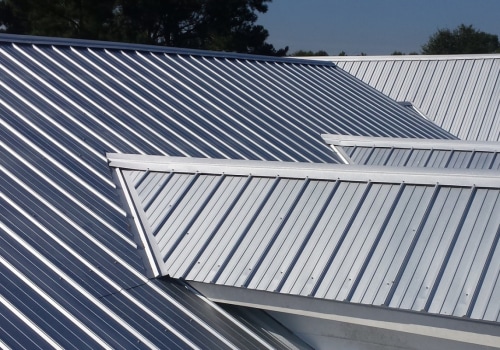Solar roof installation is a great way to reduce your energy costs and your carbon footprint. If you're considering a solar roof installation, you're likely wondering about the federal solar tax credit. In this article, we'll give you an overview of the federal solar tax credit and how it can benefit you. We will also provide some tips on how to maximize your tax credit.
What Is A Federal Solar Tax Credit
The federal solar tax credit, also known as the Investment Tax Credit (ITC), is a 30% tax credit for solar energy systems that were established by the Energy Policy Act of 2005.
The ITC applies to both residential and commercial solar installations, and there is no limit on the size of the system or the amount of the credit.
What Are The Requirements For The Federal Solar Tax Credit
To qualify for the federal solar tax credit, your solar panels must be installed on the roof of your primary residence or second home. They can’t be installed on a rental property or vacation home.
The solar panels that are installed on your roof must also be new, you can’t claim credit for used panels. And, your system must be connected to the grid so that it can generate electricity.
If you meet all of the requirements, you can claim the federal solar tax credit when you file your taxes for the year in which the solar panel was installed on your roof. You can "learn more here" if you'd want to discover more about the federal solar tax credit.
What Is A Solar Roof Installation
A solar roof installation is a photovoltaic system that uses solar panels to capture sunlight and convert it into electricity. Solar panel systems are usually mounted on the roof of a home or commercial building, although they can also be installed on the ground.
The solar panels are connected to an inverter, which converts the DC electricity generated by the panels into AC electricity that can be used by your home or business.
How To Maximize Your Federal Solar Tax Credit For Solar Roof Installation
There are a few things you can do to make sure you get the most out of your federal solar tax credit for solar roof installation.
- First, be sure to keep all receipts and documentation from your solar installation, as you will need these to claim the credit.
- Second, if you're planning on installing a solar roof, do it sooner rather than later. The sooner your system is installed, the sooner you can start taking advantage of the tax credit.
- Finally, consult with a qualified tax professional to ensure that you are eligible for the credit and that you are taking all the necessary steps to claim it.
The federal solar tax credit is a great way to save money on your solar roof installation, and it’s one of the many reasons why going solar is such a smart investment.
Additional Resources On Solar Roofs And Tax Credits
If you’re interested in learning more about solar roofs and tax credits, the following resources can help.
The Solar Energy Industries Association
They offer a Solar Tax Credit Calculator that can help you estimate the value of the federal solar tax credit.
The U.S. Department Of Energy
They have published an informative guide on solar photovoltaic systems, which includes information on tax credits and other financial incentives.
Energy Sage
They provide a comprehensive overview of state and federal solar incentives, including tax credits, rebates, and performance-based incentives.
These resources can provide you with more information on solar roof installations and how to maximize your federal solar tax credit.
What Are The Advantages Of Installing A Solar Roof
Solar roofs can be used to power your home, business, or pool, and can provide both hot water and electricity. There are many advantages to installing a solar roof, including the following.
Save Money On Energy Bills
Solar roofs can significantly reduce your energy costs by capturing free sunlight and converting it into usable electricity or hot water.
Increase The Value Of The Property
A solar roof can increase the resale value of your property by as much as $15,000, making it a smart investment for the future.
Help The Environment
Solar energy is a clean and renewable resource that doesn’t generate harmful emissions or pollutants. By switching to solar power, you can help reduce your carbon footprint and do your part to slow down climate change.
Create Jobs
The installation of solar rooftops creates jobs for electricians, roofers, and other workers in the construction industry.
Get Tax Breaks
You may be eligible for state and federal tax credits when you install a solar roof, making it an even more affordable investment.
If you’re looking for ways to save money and help the environment, installing a solar roof is a great option to consider.
The Cost Of Solar Roof Installation
Solar roof installation is a big up-front investment. The average cost of solar roof installation ranges from $7,000 to $10,000. Solar photovoltaic (PV) systems have fallen in price over the last decade, making them more affordable than ever before.
With federal and state incentives available, the payback period for solar has shrunk to just a few years in many cases. After that, you'll be generating your clean energy for decades to come. Solar PV systems have an average lifespan of 25 years, so they are a long-term investment.
Maintenance costs are minimal as well and occasional cleaning is all that's typically required to keep your system running at peak efficiency. So if you're looking for a way to save money and do your part for the environment, solar is a great option.
Several solar panel contractors in the area can advise you on how to find the best solar panel for your property. If you need more details for your solar roof panel installation, visit this website at https://local-solar.business.site.
How To Find A Qualified Contractor For Solar Roof Installations
Here are a few tips to help you find a qualified contractor for solar roof installation.
Ask For Recommendations
If you know someone who has recently installed a solar roof, ask for recommendations. A personal recommendation is always a good place to start when looking for a qualified contractor.
Check Online Reviews
When considering a contractor, be sure to check online reviews to see what other customers have said about their experience. This can give you an idea of the quality of work you can expect.
Get Multiple Quotes
Before making a decision, get multiple quotes from different contractors to compare prices and services. Be sure to ask about the warranty and any other fees that may be associated with the installation.
By following these tips, you can be sure to find a qualified contractor to install your solar roof, and also they can guide you on how to take advantage of the federal solar tax credit.
Contact A Solar Panel Contractor
A solar roof installation can help you take advantage of the federal solar tax credit, which can save you up to 30% on your total system cost. There are a few requirements for the federal solar tax credit, but if you meet them, you could see some serious savings.
In addition to the financial benefits, solar roofs also have several advantages in terms of energy production and sustainability. If you're thinking about installing a solar roof, be sure to consult with a qualified contractor to get the best possible results.
Local Solar is one of the most qualified solar panel contractors in the United States. They have a wide range of experience in solar roof installation and can help you take advantage of the federal solar tax credit. Contact them today for a consultation.




